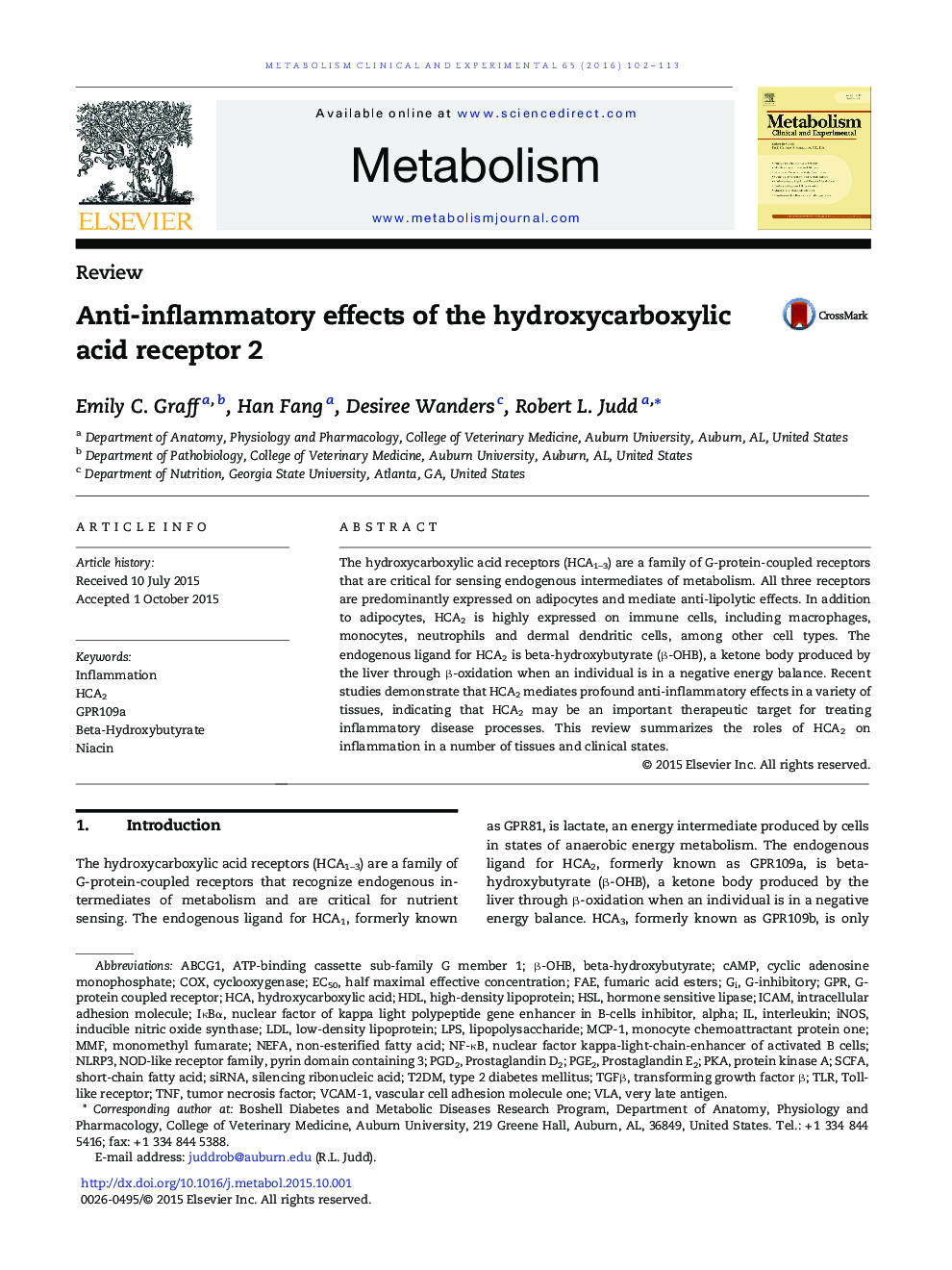| Article ID | Journal | Published Year | Pages | File Type |
|---|---|---|---|---|
| 5903058 | Metabolism | 2016 | 12 Pages |
Abstract
The hydroxycarboxylic acid receptors (HCA1-3) are a family of G-protein-coupled receptors that are critical for sensing endogenous intermediates of metabolism. All three receptors are predominantly expressed on adipocytes and mediate anti-lipolytic effects. In addition to adipocytes, HCA2 is highly expressed on immune cells, including macrophages, monocytes, neutrophils and dermal dendritic cells, among other cell types. The endogenous ligand for HCA2 is beta-hydroxybutyrate (β-OHB), a ketone body produced by the liver through β-oxidation when an individual is in a negative energy balance. Recent studies demonstrate that HCA2 mediates profound anti-inflammatory effects in a variety of tissues, indicating that HCA2 may be an important therapeutic target for treating inflammatory disease processes. This review summarizes the roles of HCA2 on inflammation in a number of tissues and clinical states.
Keywords
HSLMCP-1SCFApKaNF-κBMMFIκBαT2DMICAMVCAM-1NEFANLRP3TLRFAEABCG1VLAGPR109AATP-binding cassette sub-family G member 1Monomethyl fumarateβ-OHBHCA2TNFNod-like receptor family, pyrin domain containing 3HCAGPRHDLCOXLPSPGE2TGFβPGD2EC50iNOScAMPG-protein coupled receptorhigh-density lipoproteinsiRNACyclic adenosine monophosphatevery late antigencyclooxygenasefumaric acid estersNon-esterified fatty acidshort-chain fatty acidinflammationinterleukinbeta-hydroxybutyrateTransforming growth factor βToll-like receptorType 2 diabetes mellitusinducible nitric oxide synthasetumor necrosis factornuclear factor kappa-light-chain-enhancer of activated B cellsnuclear factor of kappa light polypeptide gene enhancer in B-cells inhibitor, alphahormone sensitive lipaseLow-density lipoproteinLDLlipopolysaccharideintracellular adhesion moleculehalf maximal effective concentrationHydroxycarboxylic acidNiacinprotein kinase AProstaglandin D2Prostaglandin E2
Related Topics
Life Sciences
Biochemistry, Genetics and Molecular Biology
Endocrinology
Authors
Emily C. Graff, Han Fang, Desiree Wanders, Robert L. Judd,
